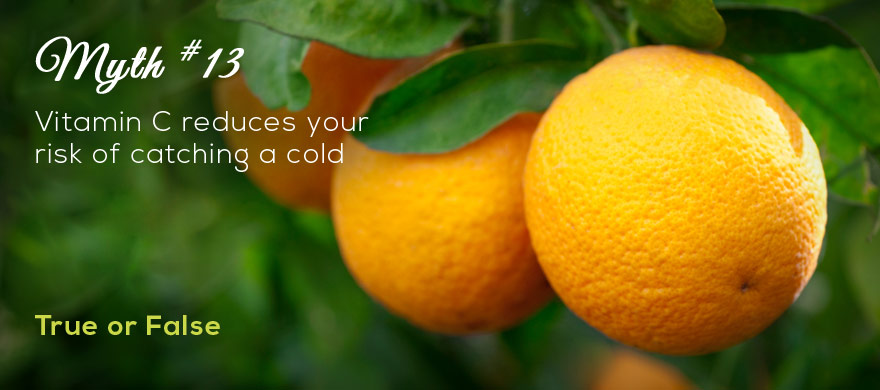
False.
If you are one of the millions who rush to the store for vitamin C at the first sign of the sniffles, current research findings suggest that you may be wasting your money. For many years the question of whether vitamin C can prevent colds has been controversial. Vitamin C was the very first vitamin to be isolated and was artificially synthesized in the 1930’s; however, it wasn’t until the 1970’s that the topic generated great public interest when Linus Pauling (awarded Nobel Prizes in chemistry and peace) widely publicized previous research results suggesting that vitamin C might help prevent colds. Over the next decade a large number of well-designed studies were conducted to try and replicate this earlier research. Many of these studies have been summarized in a review article published by Hemila, et al. (2009), which only considered studies in which participants received two hundred milligrams or more of vitamin C per day and also used placebo comparisons (an indicator of a higher quality study). The results of thirty studies, which together had over eleven thousand research participants, revealed that vitamin C had little effect on whether they caught a cold or not. The authors concluded, “The failure of vitamin C supplementation to reduce the incidence of colds in the normal population indicates that routine mega-dose prophylaxis is not rationally justified for community use.” For most people, vitamin C supplementation doesn’t help prevent colds. Interestingly, six studies in which marathon runners and skiers were exposed to periods of extreme physical or cold stress showed that vitamin C supplementation did cut the risk of developing a cold by fifty percent. So if you engage in physically demanding activities, especially in cold weather, vitamin C might help you fend off a cold.
Reference:
Hemila, H., Chalker, E., Treacy, B., and Douglas, B. Vitamin C for preventing and treating the common cold. Cochrane Database Systematic Reviews (2009), Issue 3, CD000980.
